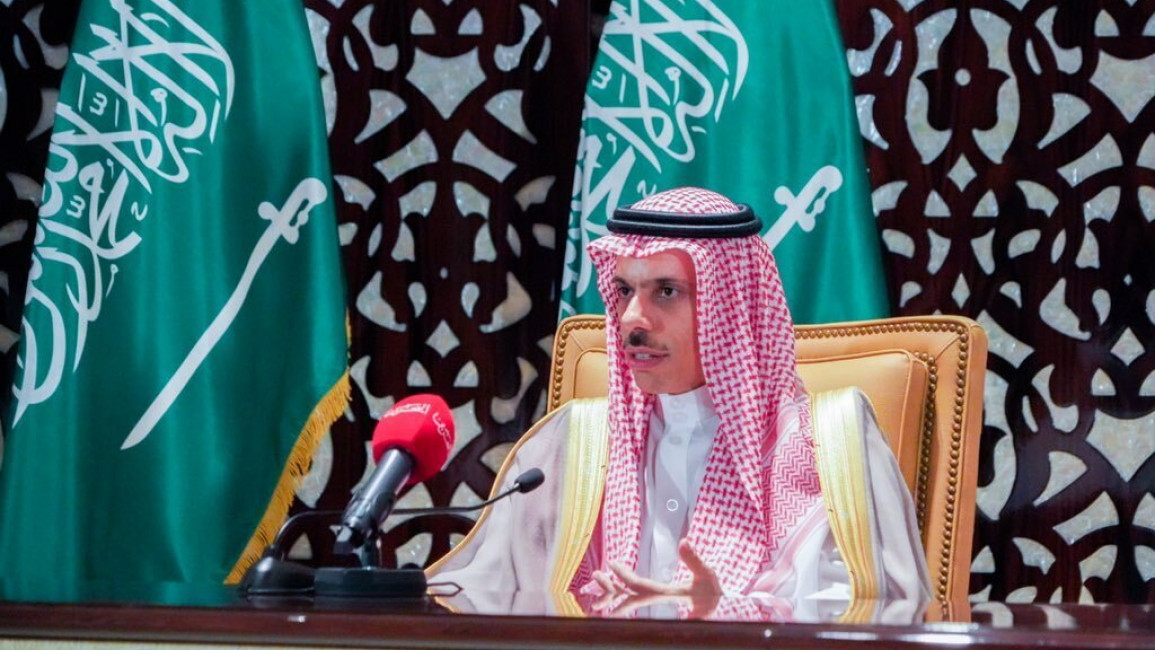Saudi Arabia plans for fresh round of talks with Iran, says foreign minister
Saudi Arabia's foreign minister said on Saturday the kingdom was looking to schedule a fifth round of direct talks with rival Iran despite a "lack of substantive progress" so far, and urged Tehran to change its behaviour in the region.
Saudi Arabia and Iran, which cut ties in 2016, launched talks last year hosted by Iraq as global powers sought to salvage a nuclear pact with Tehran, which Gulf states deemed flawed for not tackling Iran's missiles programme and network of proxies.
Saudi Foreign Minister Prince Faisal bin Farhan Al Saud said if the 2015 nuclear pact was revived that should be "a starting point, not an end point" in order to address regional concerns, and that Riyadh remained interested in talks with Iran.
"That will indeed require from our neighbours in Iran a serious desire to address the underlying issues that exist ... We hope that there is a serious desire to find a new modus operandi," he said.
"If we see substantive progress on those files, then yes rapprochement is possible. So far we have not seen that," he told the Munich Security Conference.
Following Turkish demands for Crown Prince Mohammed bin Salman and other officials to be prosecuted, Riyadh imposed an unofficial boycott on goods from Turkey.https://t.co/0lCZAW5TmF
— The New Arab (@The_NewArab) February 16, 2022
Sunni Muslim Saudi Arabia and Shia Iran are vying for influence in a rivalry that has played out across the region in events such as Yemen's war and in Lebanon, where Iran-backed Hezbollah's rising power has frayed Beirut's Gulf ties.
Earlier this month, Iran's President Ebrahim Raisi said Tehran was ready for more talks if Riyadh was willing to hold them in an atmosphere of mutual understanding and respect.
Tensions between the two countries spiked in 2019 after an assault on Saudi oil plants that Riyadh blamed on Iran, a charge Tehran denies, and continue to simmer over Yemen where a Saudi-led coalition is battling the Iran-aligned Houthi movement.
Prince Faisal said Iran continued to provide the Houthis with ballistic missile and drone parts as well as conventional weapons, a charge both Tehran and the group deny.
"This does not contribute to finding a path to settle that conflict, but we are committed and we are supportive of the United Nations representative," he said, referring to stalled U.N.-led efforts for a ceasefire in Yemen.
(Reuters)


![President Pezeshkian has denounced Israel's attacks on Lebanon [Getty]](/sites/default/files/styles/image_684x385/public/2173482924.jpeg?h=a5f2f23a&itok=q3evVtko)



 Follow the Middle East's top stories in English at The New Arab on Google News
Follow the Middle East's top stories in English at The New Arab on Google News


